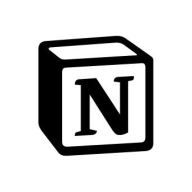

Find out in this report how the two Project Management Software solutions compare in terms of features, pricing, service and support, easy of deployment, and ROI.


Jira Portfolio is an agile roadmapping tool designed to help teams build plans, envision the big picture, track progress, and share the process with stakeholders.
Jira Portfolio is planned based. A plan in Portfolio is a complete view of the tasks, teams, and release dates for your Jira projects.
Once you start to create a plan, there are three main factors you need to define:
With Jira Portfolio, you can create a visual timeline to gain visibility across each of your teams and projects in a single place from a granular level and review cross-team and cross-project dependencies to prevent bottlenecks. This visibility can help you plan realistic release dates and manage your team’s capacity. The solution allows you to try out different scenarios with your roadmap and resources to help guide your decision making. Once you have a solid plan, you can easily integrate with Jira Software and commit your changes.
Jira Portfolio allows managers to easily add team members. The tool’s powerful scheduling algorithm assigns tasks to teams while taking priorities and dependencies into account so it can create a realistic forecast for project completion.
Jira Portfolio Benefits
Some of the top benefits of using Jira Portfolio include:
Reviews from Real Users
Jira Portfolio stands out among its competitors for a number of reasons. Two major ones are its roadmap creation tools and its flexibility.
Meeta L., a lead product manager at a tech vendor, says, “The valuable features of the JIRA Portfolio are the customization it provides which is very useful and the Agile project management capability.”
Juan P., a senior IT project manager at Avantica, writes, “Portfolio helps us increase the visibility of projects' status and management with remote workers who make up most of the company.”
Notion is an all-in-one workspace that enables teams to collaborate, organize, and manage their work effectively. Its primary use case is to streamline project management, knowledge sharing, and task tracking. With its versatile functionality, Notion allows users to create and customize databases, wikis, and documents, making it a powerful tool for organizing information.
The most valuable functionality of Notion lies in its flexibility and ease of use. Users can create and link various types of content, such as text, images, files, and even embed external resources. This enables teams to centralize their work and collaborate seamlessly, eliminating the need for multiple tools. Notion's drag-and-drop interface and intuitive editing features make it accessible to users of all technical backgrounds.
Notion helps organizations by fostering transparency, improving productivity, and enhancing knowledge management. By providing a centralized platform for collaboration, teams can easily access and contribute to shared projects, reducing communication gaps and ensuring everyone is on the same page.We monitor all Project Management Software reviews to prevent fraudulent reviews and keep review quality high. We do not post reviews by company employees or direct competitors. We validate each review for authenticity via cross-reference with LinkedIn, and personal follow-up with the reviewer when necessary.